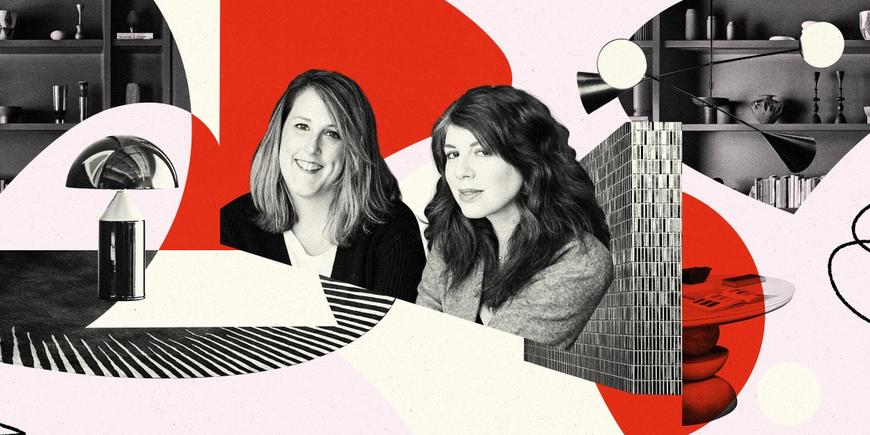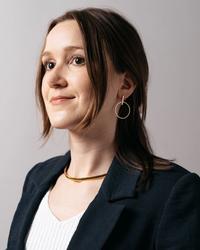For Carolyn Childers, Starting Chief Was Personal—So Was Her Relationship With Primary
Before she launched the private club for women business leaders, Chief Cofounder Carolyn Childers got to know Primary as an advisor. Here’s how she built the conviction to start.

Carolyn Childers first met Ben Sun as a coworker. She was an advisor, he was an investor; they were both sprinting to support a Primary portfolio company now worth billions.
Working together set the foundation of a friendship that would eventually support her creation of Chief, a private club for women leaders, attracting VPs and C-level executives from the likes of American Express, Cartier, Google, HBO, Instagram, Johnson & Johnson, Verizon, and many other top brands into peer-based groups in New York, Los Angeles, Chicago, San Francisco, Boston, and Washington, DC.
Building the conviction to become a founder
Carolyn Childers came into the Primary network first as an advisor, one of the hundreds of in-the-trenches operators we connect with portfolio founders to help tackle challenges. Over time, her role grew into an Entrepreneur In Residence position: sitting in on meetings, supporting various investment decisions, and getting all-around insight into how VCs think. “I also got to know Ben really well. We built a friendship and trust where he became my sounding board, the investor I went to as I thought of different things.”
“We built a ton of respect for each other. When I had an idea about a company to start, when he had an idea about a company to start, we were a mutual first call,” Carolyn says.
The idea that stuck was Chief. Carolyn started working on it and met her cofounder Lindsay Kaplan in 2017. Primary invested as the very first pieces were coming together. “Primary was actually a pre-seed investor,” Carolyn says, “Having that early capital gave me the confidence to go and do it.”
She had been an executive at many different startups, and so knew well just how hard it is to be a founder. “There are so many things that go through your mind as you consider taking on that commitment,” she says. “And one of the biggest things is, ‘Do I have the backing and belief from somebody that I want to partner with?’ Having Ben and Primary as the VC partners behind it, gave me the conviction to take the leap on Chief.”
Primary's network effect for Chief
“As I actually dove in and started to build Chief,” Carolyn says, “Ben wasn’t just an investor, he continued to be a tremendous sounding board.”
And that was a real competitive advantage for the small team powered by operational know-how. “Investors have a wider lens, having seen so many different ideas, and businesses, and their trajectories,” Carolyn says. “And I think Primary is a thoughtful, strategic, ‘never-too-early,’ organization—Ben in particular, having started out as a founder himself. It’s a valuable thought partner to have.”
One area where a wider-lens perspective was useful was in weighing whether Chief should focus its strategy on B2B or B2C acquisition. Carolyn spent a lot of time talking through the distinct advantages and disadvantages of each direction with Ben, but equally important were the introductions made to other experts. “I remember him saying, ‘I might not be the smartest person in the room, but I will find that person, befriend that person, and through osmosis, become the smartest person in the room.’ Because no one person is the smartest person on everything."
Intros carry through to funding
The introductions continued as Chief raised its seed round and Series A. “Ben and Primary were invaluable through that process,” Carolyn says. “They helped me map out the landscape to determine investors that would make sense for our business and made many of those initial introductions.”
“Outside of introductions, Ben was also a trusted advisor as we entered the discussions—helping us fine tune the pitch and, probably most importantly, being an ally and friend as we went through the highs and lows of a fundraise process.”
And at the same time, despite all the hard-earned expertise, Ben brings a very human presence to the process. “There's not a single conversation that I have with Ben that I think he's judging me through an investor lens, where I feel like I have to be pitching,” Carolyn says. “He has empathy, having gone through it himself.”
Beyond Ben: portfolio impact
Carolyn has also turned to Primary’s Portfolio Impact team—the largest of any seed-stage investor—to navigate many other parts of being a founder.
“Primary has an amazing suite of people that are a part of the firm,” Carolyn says. “Many of our initial employees were through introductions sourced through Primary—so a tremendous partner on talent”. Rebecca Price, the Operating Partner focused on people, continues to be a sounding board. “I think I was emailing her this morning about comp data,” Carolyn says. “We’re in one of the craziest talent markets ever, and Rebecca has been really helpful on that front.”
On-call CFO Bob Peruzzi built Chief’s first model. “I was an investment banker; I can build a model. But with all the competing priorities of being a Founder, it was amazing for him to do that. It's been an amazing group of people to be able to work with.”
Built to win, built for New York
At Primary, winning doesn’t mean squeaking by—it means 10X. And one way the firm has approached that is by building the most extensive early-stage network in New York City.
"Ben is so focused on, ‘How can I make the biggest impact and build the best network to bring value to the people I fund?’" Carolyn says. “It's really easy to just say, ‘I'll fund anyone.’ Ben has had a really thoughtful approach to how he can create a distinct value to all of his founders. That act of concentration is an amazing thing in and of itself. And it has allowed him to then build a tremendous network of people in the New York City ecosystem. And that makes him just the best in that ecosystem. It doesn't mean he doesn't know anybody outside of New York City—we have gotten great introductions across the country and across the world—but there's a unique, competitive advantage that you have by being as clearly focused in building out a tremendous network in one market.”
